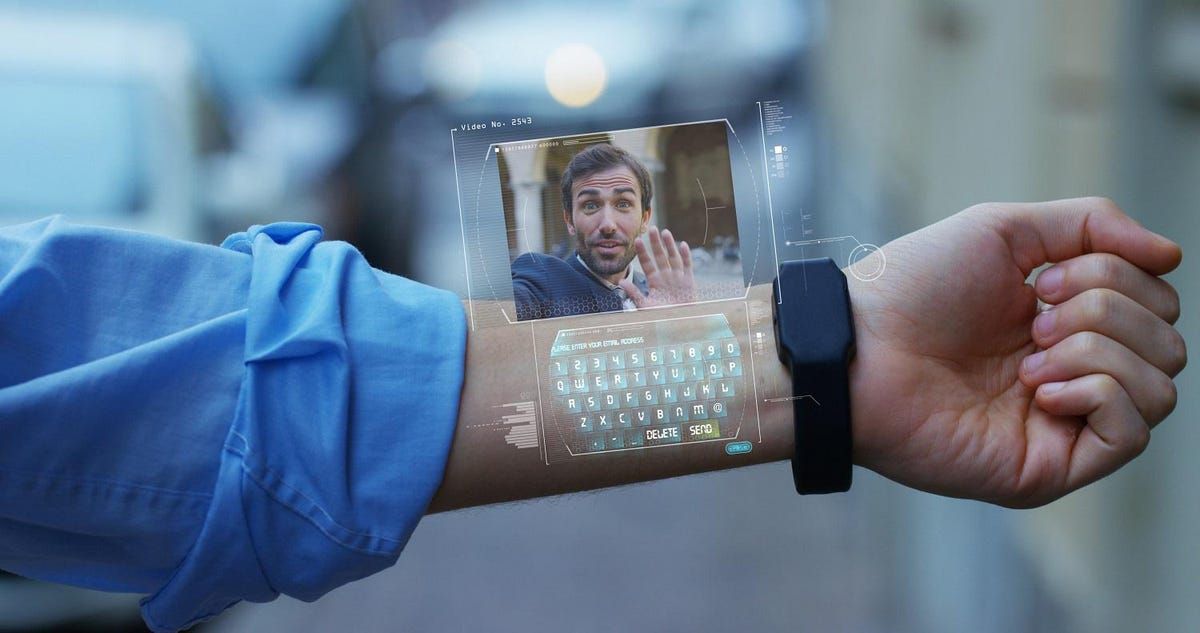In today’s fast-paced world, stress is a daily companion for many. As we seek more effective ways to manage and reduce stress, technology has introduced innovative solutions. Wearables for stress management have emerged as powerful tools to help individuals monitor, understand, and actively manage their stress levels. This article explores the top wearables designed specifically for stress management, detailing their features, benefits, materials, and technical specifications to help you choose the best device for a calmer, more balanced life.
Understanding Wearables for Stress Management
Wearable devices for stress management typically use advanced sensors to monitor physiological indicators of stress, such as heart rate variability (HRV), skin conductance, and breathing patterns. By analyzing these metrics, these devices can provide real-time feedback on stress levels and offer interventions like guided breathing exercises or mindfulness sessions to help users manage their stress more effectively.
Key Features to Look for in Stress Management Wearables:
- Heart Rate Variability (HRV) Monitoring: A key indicator of stress and recovery.
- Guided Breathing Exercises: Helps control stress in real time.
- Sleep Quality Tracking: Understanding how stress affects sleep.
- Meditation Guidance: Mindfulness exercises for mental well-being.
- Activity Tracking: Helps you understand the connection between physical activity and stress.
- Real-time Stress Alerts: Immediate feedback when stress levels rise.
- Comprehensive Mobile App Integration: Data and insights presented in a user-friendly way.
Top Wearables for Stress Management
1. Fitbit Sense
The Fitbit Sense is a versatile smartwatch that goes beyond typical fitness tracking to offer advanced stress management features. It uses EDA (Electrodermal Activity) sensors, which measure small electrical changes in the sweat level of your skin—a reliable indicator of your body’s stress response.
Materials and Design:
- Body: Aerospace-grade aluminum with polished stainless steel frame.
- Strap: Soft silicone with a wide variety of color options.
- Display: AMOLED display with Corning Gorilla Glass 3 protection.
Key Features:
- EDA Scan App: Detects electrodermal activity for stress management.
- On-wrist EKG app: Monitors heart health.
- Guided mindfulness sessions: Relaxation exercises tailored to your needs.
- Sleep tracking: Provides a detailed sleep score with sleep stages.
- Skin temperature sensor: Detects variations in temperature that may indicate stress.
- 6+ day battery life: Excellent longevity for all-day and night tracking.
Technical Notes:
- Battery Life: 6+ days on a single charge; 12 minutes to get a day’s charge with fast charging.
- Connectivity: Bluetooth, Wi-Fi, GPS, and NFC.
- Stress Score: Offers a daily score based on HRV, sleep patterns, and activity.
Pros:
- Comprehensive health and stress tracking.
- Long battery life with quick charging.
- Offers detailed stress and sleep insights.
Cons:
- Requires a premium subscription for advanced data analysis.
- Larger size might not suit smaller wrists.
Price: $299.95
2. Apple Watch Series 7 (with watchOS 8)
While not marketed exclusively as a stress management device, the Apple Watch Series 7 offers some of the best health and wellness features on the market, including stress management tools through its Mindfulness app and heart rate monitoring.
Materials and Design:
- Body: Aluminum, stainless steel, or titanium.
- Display: Always-on Retina display, with nearly 20% more screen area than its predecessors.
- Strap: Interchangeable straps ranging from silicone to leather and metal.
Key Features:
- Mindfulness App: Includes guided breathing sessions to reduce stress.
- Heart Rate Monitoring: Detects unusual heart rates that could indicate stress.
- Sleep tracking: Monitors sleep stages and offers a Sleep Schedule feature.
- ECG App: Provides a more in-depth look at heart health, which is closely tied to stress.
- Integration with Apple Fitness+: Access to guided meditation and workout sessions.
Technical Notes:
- Battery Life: 18 hours; designed for quick overnight charging.
- Connectivity: Cellular, GPS, Wi-Fi, and Bluetooth.
- Water Resistance: Up to 50 meters.
Pros:
- Seamless integration with iPhone and other Apple services.
- A wide range of health and fitness features.
- Large app ecosystem for meditation and mindfulness.
Cons:
- Relatively short battery life for those needing continuous tracking.
- Higher price point, especially with cellular models.
Price: Starting at $399
3. Garmin Venu 2 Plus
The Garmin Venu 2 Plus blends stress tracking with comprehensive fitness features, making it a versatile option for those who want both health tracking and fitness coaching in a stylish package.
Materials and Design:
- Body: Stainless steel bezel with fiber-reinforced polymer.
- Display: AMOLED with Corning Gorilla Glass 3 protection.
- Strap: Silicone strap available in multiple colors.
Key Features:
- Body Battery: An energy monitoring feature that combines stress, sleep, and physical activity to show your energy levels throughout the day.
- Stress tracking: Offers relaxation reminders when stress levels are elevated.
- Guided breathing exercises: Helps you practice calming breathing techniques.
- Sleep score and insights: Tracks sleep stages and provides detailed insights.
- Voice assistant compatibility: Works with Siri, Google Assistant, and Bixby.
Technical Notes:
- Battery Life: Up to 9 days in smartwatch mode; 24 hours with GPS on.
- Sensors: Pulse Ox, HRV, GPS, accelerometer, and gyroscope.
- Water Resistance: 50 meters (swim-proof).
Pros:
- Excellent battery life compared to competitors.
- Comprehensive health and fitness tracking.
- Built-in GPS for accurate activity tracking.
Cons:
- Limited third-party app support compared to Apple and Fitbit.
- The extensive feature set may be overwhelming for casual users.
Price: $449.99
4. Oura Ring (3rd Generation)
The Oura Ring stands out as a discreet, screenless device that offers powerful insights into stress, recovery, and sleep. Unlike traditional wearables, the Oura Ring is a minimalistic design that feels like a piece of jewelry, not a gadget.
Materials and Design:
- Material: Durable titanium, available in multiple finishes such as silver, black, and gold.
- Design: Sleek, unisex design, with a focus on minimalism and comfort.
Key Features:
- Readiness Score: A daily score based on HRV, body temperature, and sleep data to assess how well your body is coping with stress and recovery.
- Advanced Sleep Tracking: Monitors sleep cycles and provides detailed insights.
- Activity Tracking: Counts steps, calories burned, and daily movement.
- Temperature Monitoring: Measures body temperature to detect variations that can affect stress and health.
Technical Notes:
- Battery Life: 7 days on a single charge.
- Connectivity: Bluetooth; requires the Oura app for detailed insights.
- Subscription: Requires a monthly subscription for full access to advanced features.
Pros:
- Discreet and comfortable design suitable for 24/7 wear.
- Detailed analysis of sleep and recovery.
- Water-resistant for everyday activities.
Cons:
- No display, requiring phone for insights.
- Limited activity tracking compared to full-featured smartwatches.
Price: Starting at $299 (plus monthly subscription)
5. Apollo Neuro
The Apollo Neuro is a unique wearable that focuses exclusively on stress management through touch therapy. Unlike most wearables that monitor stress, this device actively helps users reduce stress by emitting silent, soothing vibrations.
Materials and Design:
- Material: Hypoallergenic medical-grade plastic.
- Design: Can be worn on the wrist, ankle, or clipped onto clothing.
Key Features:
- Touch Therapy: Uses silent vibrations to promote relaxation, sleep, and focus.
- Seven Modes: Includes modes for sleep, relaxation, focus, recovery, and energy.
- Water-resistant: Durable for everyday wear, including during exercise or showers.
- 8-hour battery life: Ideal for a full day of stress management.
Technical Notes:
- Battery Life: 8 hours on a single charge.
- Connectivity: Bluetooth for syncing with the Apollo app.
- Modes: Each mode emits different frequencies designed for specific stress relief needs (e.g., energy boost, calming, socializing).
Pros:
- Non-invasive stress relief without the need for a screen or notifications.
- Can be worn discreetly without drawing attention.
- Effective for sleep, stress, and focus management.
Cons:
- Limited to stress relief—does not include fitness or other health tracking.
- Higher price point for a single-purpose device.
Price: $349
6. Muse 2 Headband
The Muse 2 is a specialized wearable for
meditation and mindfulness practice. It provides real-time feedback on brain activity, heart rate, breathing, and body movements during meditation, helping users develop a consistent practice.
Materials and Design:
- Material: Flexible, adjustable band made of soft-touch materials for comfort.
- Design: Sleek, minimal design that sits comfortably across the forehead.
Key Features:
- EEG Sensors: Real-time brainwave monitoring to track active, calm, and neutral mental states during meditation.
- Guided Meditations: Helps users stay focused through mindfulness sessions.
- Real-time Feedback: Provides real-time auditory feedback on your mental state through soundscapes that shift based on your brain activity.
- Tracking: Monitors heart rate, breathing, and body movements during sessions to give a holistic view of your meditation progress.
Technical Notes:
- Battery Life: N/A (corded).
- Connectivity: Bluetooth, compatible with the Muse app for session tracking.
- Sensors: EEG, PPG, accelerometer, and gyroscope.
Pros:
- Unique real-time feedback on brain activity during meditation.
- Encourages consistency in meditation practice.
- Easy to use for beginners and experienced meditators alike.
Cons:
- Not suitable for all-day wear.
- Requires dedicated time and focus for effective use.
Price: $249.99
Comparison Table
| Device | Type | Key Features | Battery Life | Price |
|---|---|---|---|---|
| Fitbit Sense | Smartwatch | EDA Scan, ECG, Sleep Tracking | 6+ days | $299.95 |
| Apple Watch Series 7 | Smartwatch | Mindfulness App, ECG, Fitness+ | 18 hours | From $399 |
| Garmin Venu 2 Plus | Smartwatch | Body Battery, Stress Tracking | Up to 9 days | $449.99 |
| Oura Ring (3rd Gen) | Smart Ring | Sleep Analysis, Readiness Score | 7 days | From $299 |
| Apollo Neuro | Wearable Touch Therapy | Vibration Therapy, 7 Modes | 8 hours | $349 |
| Muse 2 | Meditation Headband | EEG Monitoring, Guided Meditations | N/A (corded) | $249.99 |
Choosing the Right Wearable for Stress Management
When selecting a wearable for stress management, consider the following factors:
- Form Factor: Decide whether you prefer a smartwatch, ring, or specialized device like a meditation headband.
- Features: Choose the stress management features that are most important to you, such as HRV monitoring, guided breathing, or vibration therapy.
- Battery Life: Consider how often you’re willing to charge the device—some offer all-day wear, while others may need more frequent recharging.
- Integration: Ensure the wearable is compatible with your smartphone and existing apps.
- Price: Balance the initial investment with potential subscription fees or additional costs for premium features.
The Effectiveness of Wearables in Stress Management
Wearables can be powerful tools for stress management, but their effectiveness depends on user engagement. These devices provide real-time data and actionable insights, encouraging users to take control of their stress levels. However, they work best when used as part of a holistic stress management strategy that includes lifestyle changes, therapy, and mindfulness practices.
Conclusion
Wearables for stress management offer an innovative approach to managing your body’s response to stress. From comprehensive smartwatches like the Fitbit Sense and Apple Watch Series 7 to specialized devices like the Apollo Neuro and Muse 2, there are options for every lifestyle and preference.
These wearables empower you with real-time data, allowing you to make informed decisions and adopt techniques to reduce stress. By integrating these devices into your daily routine, you can move towards a calmer, more balanced life. However, remember that these devices are most effective when used as part of a comprehensive approach to managing stress, which may include healthy lifestyle choices, mindfulness practices, and professional support when needed.








